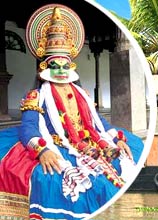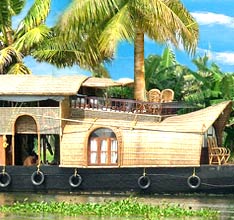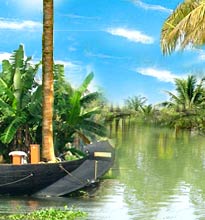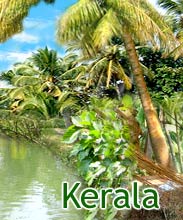 Fort
Cochin is a small community in itself. Since it is a natural harbor and
one of the most important trade centers in south of India, Kochi fort of
Kerala is one of the most important towns in the state. The Europeans
have left a major impact on the culture and traditional heritage of
Cochin. One can see a unique blend of European, Dutch and Portugal
lifestyle in fort of Cochin. That is because European, Dutch and
Portuguese rulers occupied Cochin for many years due to which Cochin has
a modern temperament. The fact that Cochin has managed to retain its
traditional background is applaudable.
Fort
Cochin is a small community in itself. Since it is a natural harbor and
one of the most important trade centers in south of India, Kochi fort of
Kerala is one of the most important towns in the state. The Europeans
have left a major impact on the culture and traditional heritage of
Cochin. One can see a unique blend of European, Dutch and Portugal
lifestyle in fort of Cochin. That is because European, Dutch and
Portuguese rulers occupied Cochin for many years due to which Cochin has
a modern temperament. The fact that Cochin has managed to retain its
traditional background is applaudable. In pre-colonial Kerala, Kochi was just an insignificant fishing village. The Maharaja of Cochin granted this territory (now known as Fort Kochi) later to the Portuguese in 1503. The Portuguese built a fort around the waterfront to protect their premises and that is how Cochin Fort got its name. This fort was called Fort Emmanuel and was later destroyed by Dutch.
The Portuguese later built a wooden church in 1516, which is now the oldest existing church in Kerala. It is now known as St. Francis Church. The Portuguese ruled for almost 160 years before the Dutch came and plundered the territory from the Portuguese and ruled Fort Kochi for almost 112 years before being defeated by the British who came to rule India. After 400 years of British rule, Cochin finally became independent when India became independent.
Today, this beautiful city is independent and fast growing as a major commercial center of Kerala and is an important trade center in India. Fort Cochin is known as the "Queen of Arabian Sea" in tourist literature. One of the most metropolitan cities of Kerala, Cochin is a must see for all those who want to experience modernization with a hint of traditional style.









